Notes From a Pandemic: May 9th, 2020
by Miles Raymer
Greetings, dear friends of the present and curious citizens of the future.
I come to you this morning in a difficult mental state––one with which I’m not very familiar. Nothing particularly eventful has occurred since my last journal, and yet my perspective has shifted in a way that I’m struggling to understand. I am feeling less than myself, or perhaps more like my lesser self than usual. I feel numb and sad, lonely and irritable, humming with a hurt in my hips and neck. My eyes are exhausted.
Over the last two weeks, my motivation to write these journals has taken a hit. This is partially because I have less to say now about the pandemic than I did previously, and also because I have taken on some new, unexpected projects. The most demanding of these has been my adoption of Roam Research, a note-taking tool that uses bidirectional links to form novel connections within a database of verbal information. For two and a half weeks, I spent the majority of my free time dumping nearly a decade of notes into this system, covering every book I’ve read since late 2011. The current number stands at 367 individual book notes, many of which are now linked together using various tags I created. Here’s a visual representation generated by Roam’s “Graph Overview” function:
Each node on this graph represents an author, book title, idea/concept, or one of the basic components of a book note (e.g. Metadata, General Notes, Page Notes, Rating, etc.). The size of a node reflects the number of connections it has with other nodes––the more connections, the bigger the node. When I click on a node, the system highlights these connections. Below are some examples of how various book themes appear when highlighted.
Family:
Nature:
Politics:
America:
This is just the first draft of my database; the connections will be revised and refined over time. But as a starting point, I think there’s something weirdly beautiful and mysterious about this new portal to my intellectual history. I don’t know exactly how Roam will help me moving forward, and I am certainly a novice when it comes to leveraging the data, but I think there’s enough potential here to justify my initial efforts to transfer my notes into the system and to keep adding them moving forward.
One of the ways that Roam has already proved useful is that it allows me to quickly summarize and review my encounters with various words and concepts over the years, and to locate specific quotes and references related to them. As an experiment this morning, I typed the words “pain” and “suffer” into the system. Of the numerous hits I got, some of them turned up quotes that feel relevant to the present moment (see below).
To return to where we started, I think the magnitude of the pandemic and its attendant burdens is finally starting to take a significant psychological toll on me. The pain of this moment––which is not one distinct moment, but a fusillade of transforming tragedies––is being felt everywhere, all at once, together, and yet also in the most profound and alienating isolation. And, for now, there really is no end in sight, except the unsatisfactory promise that the pandemic will end someday.
One of the only compensatory sentiments we can turn to is the knowledge that our suffering is part of the common human lot, not just now but across time and space. My own words are running dry, so I will leave it to these celebrated others to help you make that connection however you can:
All pain attacks me with a double-edged sword: it makes me aware as never before of the divorce between my ego and my body (and its falseness, its consoling invention) and at the same time it brings my body close to me, dresses me in it as pain. I feel it to be more mine than pleasure or mere coenesthesis. It is really a bond. If I could sketch I would gladly show pain chasing the soul out of my body, but at the same time I would give the impression that it’s all untrue: mere characteristics of a complex whose unity lies in not having any. (Julio Cortázar, Hopscotch, 404)
It is more than metaphorical to describe your feelings as being hurt. Reactions to physical harm and social rejection are mediated by a similar physiological system: social pain really is pain. A brain-scanning study of social exclusion found that social distress is associated with activity in the anterior cingulate cortex, which is known to be an important site for processing physical pain signals. Another brain area involved in both social and physical pain is the periaqueductal gray in the midbrain, which plays a role in both detecting bodily injury and regulating attachment behavior. There thus seems to be a physiological explanation as to why social and physical pain have many shared linguistic and behavioral correlates. Many languages use a term like “hurt” to describe how people feel when they are rejected. The behavior and feelings of anxiety and fear are strongly tied to both physical and social pain, which are also linked to sadness and depression. (Paul Thagard, The Brain and the Meaning of Life, 154-5)
Once the stormy years of his early struggles were over, Dr. Juvenal Urbino had followed a set of routine and achieved a respectability and prestige that had no equal in the province. He arose at the crack of dawn, when he began to take his secret medicines: potassium bromide to raise his spirits, salicylates for the ache in his bones when it rained, ergosteral drops for vertigo, belladonna for sound asleep. He took something every hour, always in secret, because in his long life as a doctor and teacher he had always opposed prescribing palliatives for old age: it was easier for him to bear other people’s pains than his own. In his pocket he always carried a little pad of camphor that he inhaled deeply when no one was watching to calm his fear of so many medicines mixed together. (Gabriel García Márquez, Love in the Time of Cholera, 8)
In a healthy society, common pain should lead to common purpose. Common purpose should lead to common projects. And common projects should bring back common sense. (Van Jones, Beyond the Messy Truth, 141)
The doctor was still looking out of the window. Beyond it lay the tranquil radiance of a cool spring sky; inside the room a word was echoing still, the word “plague.” A word that conjured up in the doctor’s mind not only what science chose to put into it, but a full series of fantastic possibilities utterly out of keeping with that grey and yellow town under his eyes, from which were rising the sounds of mild activity characteristic of the hour; a drone rather than a bustling, the noises of a happy town, in short, if it’s possible to be at once so dull and happy. A tranquility so casual and thoughtless seemed almost effortlessly to give the lie to those old pictures of the plague: Athens, a charnel-house reaching to heaven and deserted even by the birds; Chinese towns cluttered up with victims silent in their agony; the convicts of Marseille piling rotting corpses into pits; the building of the Great Wall in Provence to fend off the furious plague-wind; the damp, putrefying pallets stuck to the mud floor at the Constantinople lazar-house, where the patients were hauled up from their beds with hooks; the carnival of masked doctors at the Black Death; men and women copulating in the cemeteries of Milan; cartloads of dead bodies rumbling through London’s ghoul-haunted darkness––nights and days filled always, everywhere, with the eternal cry of human pain. (Albert Camus, The Plague, 38)
All the animals, with which this globe is peopled, there is none towards whom nature seems, at first sight, to have exercised more cruel than towards man, in the numberless wants and necessities, with which she has loaded him, and in the slender means, which she affords to the relieving of these necessities. In other creatures these two particulars generally compensate each other. If we consider the lion as a voracious and carnivorous animal, we shall easily discovered him to be very necessitous; but if we turn our eye to his make and temper, his agility, his courage, his arms, and his force, we shall find, that his advantages hold proportion with his wants. The sheep and ox are deprived of all these advantages; but their appetites are moderate, and their food is of easy purchase. In man alone, this unnatural conjunction of infirmity, and of necessity, may be observed in its greatest perfection. Not only the food, which is required for his sustenance, flies his search and approach, or at least requires his labor to be produced, but he must be possessed of clothes and lodging, to defend him against the injuries of the weather; though to consider him only in himself, he is provided neither with arms, nor force, nor other natural abilities, which are in any degree answerable to so many necessities.
‘Tis by society alone he is able to supply his defects, and raise himself up to an equality with his fellow-creatures, and even acquire a superiority above them. By society all his infirmities are compensated; and so into that situation he wants multiply every moment upon him, yet his abilities are still more augmented, and leave him in every respect more satisfied and happy, than ’tis possible for him, in his savage and solitary condition, ever to become. When every individual person labors apart, and only for himself, his force is too small to execute any considerable work; his labor being employed in supplying all his different necessities, he never attains a perfection in any particular art; and as his force and success are not at all times equal, the least failure in either of these particulars must be attended with inevitable ruin and misery. Society provides a remedy for these three inconveniences. By the conjunction of forces, our power is augmented: By the partition of employments, our ability increases: And by mutual succor we are less exposed to fortune and accidents. ‘Tis by this additional force, ability, and security, that society becomes advantageous. (David Hume, A Treatise of Human Nature, Book III, Part II, Section II, 344-5)
Nearly everyone has his secret box of pain, shared with no one. (John Steinbeck, East of Eden, 475)
Neither the most burning emotional capacity for empathy nor the most highfalutin moral reasoning makes someone likely to actually do the brave, difficult thing…
One instance where empathic responses don’t necessarily lead to acts is when we think enough to rationalize (“It’s overblown as a problem” or “Someone else will fix it”). But feeling too much has problems as well. Feeling someone else’s pain is painful, and people who do so most strongly with the most pronounced arousal and anxiety, are actually less likely to act prosocially. Instead the personal distress induces a self-focus that prompts avoidance––”This is too awful; I can’t stay here any longer.” As empathic pain increases, your own pain becomes your primary concern.
In contrast, the more individuals can regulate their adverse empathic emotions, the more likely they are to act prosocially. Related to that, if a distressing, empathy-evoking circumstance increases your heart rate, you’re less likely to act prosocially than if it decreases it. Thus, one predictor of who actually acts the ability to gain some detachment, to ride, rather than be submerged, by the wave of empathy…The trouble, of course, is how that same detachment makes it easy to decide that something is not my problem. (Robert M. Sapolsky, Behave, 169)
It’s not clear that the motivation to help others is a defining characteristic of compassion at all; perhaps we should instead speak of a motivation to help others if and when such help as possible and needed. Either way, and additional and more fundamental defining characteristic is the ability to be fully aware, in the presence of others’ distress, of the external situation and of our emotional reactions to that situation. Meanwhile, a motivation to helping behavior can be associated with emotions, such as pity, that do not rise to the level of compassion, or worse, with forms of blind, reactive busyness that may simply cause more problems. (Charles Goodman, ” Varieties of Compassion in Buddhist Philosophy: Comments on Cameron and Rapier,” Moral Psychology, Volume 5, 420)
I’ve heard it argued that long ago pain begat consciousness…Adversity forced awareness on us, and it works, it bites us when we go too near the fire, when we love too hard. Those felt sensations are the beginning of the invention of the self…God said, Let there be pain. And there was poetry. Eventually. (Ian McEwan, Nutshell, 45)
Pain must enter into its glorified life of memory before it can turn into compassion. (George Eliot, Middlemarch, 780)
In the higher perspective, the end is the human spirit rather than its flesh. With no species enjoying guaranteed long-term prosperity in history, there is little doubt that humanity as it is will become obsolete––there will be better physical organizations to carry on the human spirit.
We can face the transhuman future with the upbeat mood of scientist Harold J. Morowitz, who––in his enlightened mysticism––was in a state of cosmic joy and local pain (joyful understanding of our place in the universe, but continuing to face the usual moral dilemmas in daily life), and who treated the state of human nature as one of cosmic pain and local joy (existential despair and hedonic indulgence). It is one thing for us to make peace with our limited morality. It is quite another for us to shirk our God-given responsibility to contemplate and to advance the Cosmic Creation and what will come after humanity. (Ted Chu, Human Purpose and Transhuman Potential, 326)
It is not an accident or a limitation or a prejudice that we cannot care equally about all the suffering in the world: it is a condition of our existence and our sanity. Equally, it is not that the demands of the moral consciousness require us to leave human life all together and then come back to regulate the distribution of concerns, including our own, by criteria derived from nowhere. We are surrounded by a world which we can regard with a very large range of reactions: wonder, joy, sympathy, disgust, horror. We can, being as we are, reflect on these reactions and modify them to some extent. We can think about how this human estate or settlement should be run, and about its impacts on its surroundings. But it is a total illusion to think that this enterprise can be licensed in some respects and condemned in others by credentials that come from another source, a source that is not already involved in the peculiarities of the human enterprise. It is an irony that this illusion, even when it takes the form of rejecting so-called speciesism and the human prejudice, actually shares a structure with older Illusions about there being a cosmic scale of importance in terms of which human beings should understand themselves. (Bernard Williams, “The Human Prejudice,” Philosophy as a Humanistic Discipline, 147)
For hearts which have long suffered, happiness is like dew on soil parched by the sun: both heart and earth absorb this beneficial rain as it falls on them, and nothing appears on the surface. (Alexandre Dumas, The Count of Monte Cristo, loc. 23,390)
He had learned that, as there is no situation in the world in which a man can be happy and perfectly free, so there is no situation in which he can be perfectly unhappy and unfree. He had learned that there is a limit to suffering and a limit to freedom, and that those limits are very close; that the man who suffers because one leaf is askew in his bed of roses, suffers as much as he now suffered falling asleep on the bare, damp ground, one side getting cold as the other warmed up; and that when he used to put on his tight ballroom shoes, he suffered just as much as now, when he walked quite barefoot (his shoes had long since been worn out) and his feet were covered with sores. He learned that when, by his own will, as it had seemed to him, he had married his wife, he had been no more free than now, when he was locked in a stable for the night… Only now did Pierre understand the full force of human vitality and the saving power of the shifting of attention that has been put in man, similar to the safety valve in steam engines, which releases the extra steam as soon as the pressure exceeds a certain norm. (Leo Tolstoy, War and Peace, 1060)
Like infernal fire, grief burns but does not consume; instead, it makes the heart vulnerable to further suffering. (Ted Chiang, “The Merchant and the Alchemist’s Gate,” Exhalation, 28)
When examining the history of any human network, it is advisable to stop from time to time and look at things from the perspective of some real entity. How do you know if an entity is real? Very simple––just ask yourself, “Can it suffer?” When people burn down the Temple of Zeus, Zeus doesn’t suffer. When the euro loses its value, the euro doesn’t suffer. When a bank goes bankrupt, the bank doesn’t suffer. When a country suffers a defeat in war, the country doesn’t really suffer. It’s just a metaphor. In contrast, when a soldier is wounded in battle, he really does suffer. When a famished peasant has nothing to eat, she suffers. When a cow is separated from her newborn calf, she suffers. This is reality. (Yuval Noah Harari, Homo Deus, 177)
I think I learned more about myself and about humans in general by observing my sensations for those ten days then I have learned in my whole life up to that point. And to do so I didn’t have to accept any story, theory, or mythology. I just had to observe reality as it is. The most important thing I realized was that the deepest source of my suffering is in the patterns of my own mind. When I want something and it doesn’t happen, my mind reacts by generating suffering. Suffering is not an objective condition in the outside world. It is a mental reaction generated by my own mind. Learning this is the first step towards ceasing to generate more suffering. (Yuval Noah Harari, 21 Lessons for the 21st Century, 317-8)
Suffering is compensated if it comes within a life that is worth living. (Derek Parfit, Reasons and Persons, 408)
Alexei felt that he could not divert people’s hatred from himself, because the reason for that hatred was not that he was bad (then he could have tried to be better), but that he was shamefully and repulsively unhappy. For that, for the very fact that his heart was wounded, they would be merciless towards him; people would destroy him, as dogs kill a wounded dog howling with pain. He knew that the only salvation from people was to conceal his wounds from them, and for two days he had tried unconsciously to do that, but now he felt that he was no longer able to keep up this unequal struggle.
His despair was increased by the awareness that he was utterly alone with his grief. Not only did he not have a single person in Petersburg to whom he could tell all that he felt, who would pity him not as a high official, not as a member of society, but simply as a suffering person, but he had no such person anywhere. (Leo Tolstoy, Anna Karenina, 506)
My mother’s suffering grew into a symbol in my mind, gathering to itself all the poverty, the ignorance, the helplessness; the painful, baffling, hunger-ridden days and hours; the restless moving, the futile seeking, the uncertainty, the fear, the dread; the meaningless pain in the endless suffering. Her life set the emotional tone of my life, colored the men and women I was to meet in the future, conditioned my relation to events that had not yet happened, determined my attitude to situations and circumstances I had yet to face. A somberness of spirit that I was never to lose settled over me during the slow years of my mother’s unrelieved suffering, a somberness that was to make me stand apart and look upon excessive joy with suspicion, that was to make me self-conscious, that was to make me keep forever on the move, as though to escape a nameless fate seeking to overtake me.
At the age of twelve, before I had one full year of formal schooling, I had a conception of life that no experience would ever erase, a predilection for what was real that no argument could ever gainsay, a sense of the world that was mine and mine alone, a notion as to what life meant that no education could ever alter, a conviction that the meaning of living came only when one was struggling to wring a meaning out of meaningless suffering. (Richard Wright, Black Boy, 100)
Until next time, be well, and good luck.
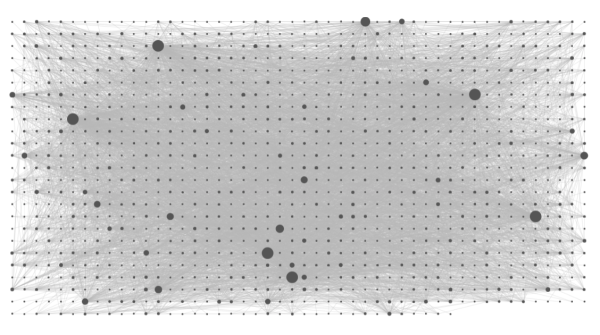
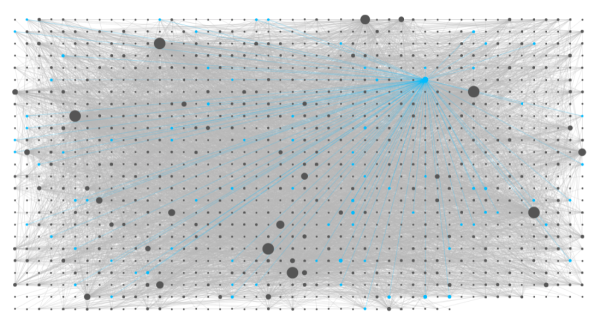
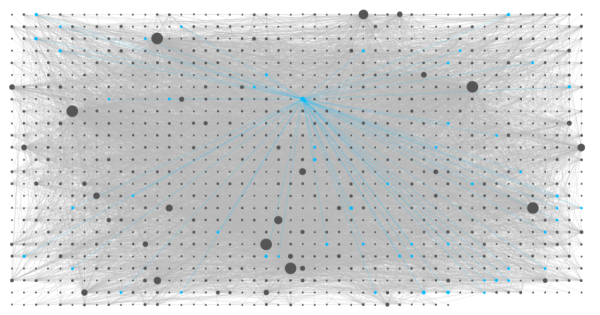
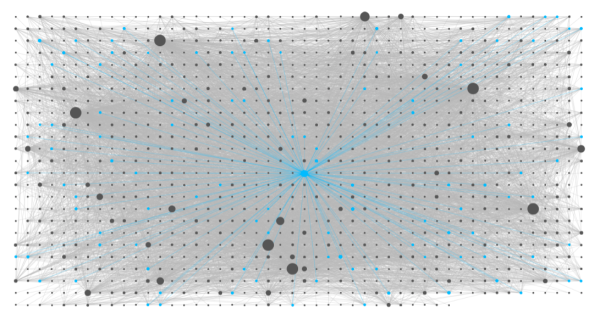
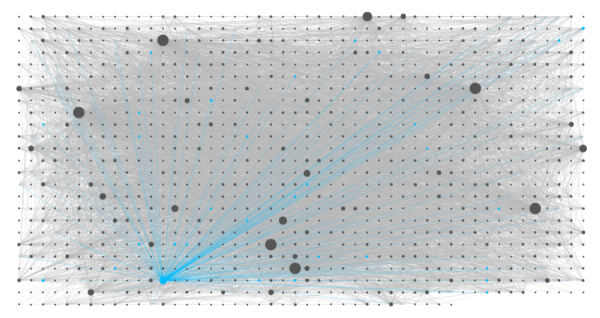
Thanks as always for sharing Miles! Loved reading through the quotes. Amazing how much beauty there is in all those ideas about pain.
Yeah, I agree! Being able to quickly pull all those ideas together with just a few keystrokes was truly a novel and thrilling experience! Really glad you enjoyed it. 🙂